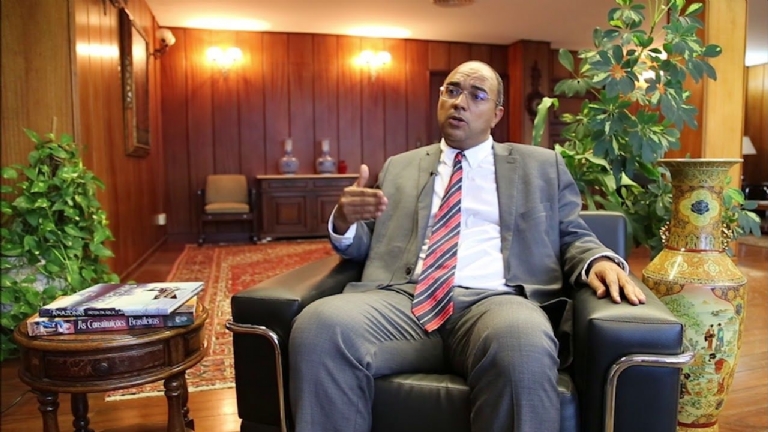

Finance Minister Fernando Haddad recently said that the intended regulation of sports betting, leading to the collection of taxes on the sector, should raise R$ 2 billion (us$ 389m) to R$ 6 billion (US$ 1.16b) per year.
Manoel, who immersed himself in the subject as an authority that dealt directly with MP 846 in the Temer government, says that, in terms of permanent collection, the taxation of sports betting should bring, at best, something between R$ 600 million (US$ 116m) and R$ 1 billion (US$ 116m) a year.
One of the reasons is that more than 95% of revenue from sports betting sites returns to bettors in the form of prizes, and therefore, the gain to be taxed is much lower than it is imagined. On the side of the gamblers, most of the winnings are small amounts, hundreds of reais, not exceeding the IR exemption range - and therefore, for most Brazilians who are exempt, those winnings do not generate taxable income.
In the first year of sports betting regulation, Manoel points out, the delivery of grants to betting companies that regularize themselves could perhaps yield R$ 6 billion (US$ 1.16b). But it's a one-year effect.
Still, the best path, for the economist, would be a presidential decree to regulate Law 13,756, which could be followed almost immediately by the preparation of concession contracts by the Ministry of Finance and grant auctions. The path, considered by the government, of editing an MP to regulate sports betting is a trap, in Manoel's view, which may even harm the conduct of the political process that will try to lead to the new fiscal framework and tax reform.
To substantiate his point of view, the AZ Quest economist first recalls the circumstances in which sports betting was legalized in 2018, during the Temer government.
Initially, MP 846 was not intended to legalize sports betting, but rather to consolidate legislation on lotteries, to improve the apportionment process and channel resources towards public safety. The idea of legalizing sports betting on websites, within the scope of MP 846, was proposed by former deputy Vicente Cândido (PT-SP) and supported by former senator Flexa Ribeiro (PSDB-PA), with the endorsement of the then mayor Rodrigo Maia (DEM-RJ). The idea took hold, entered the MP and became law.
As Law 13,756 has not yet been regulated, taxes are not charged on sports bets placed on websites.
Manoel recalls that the Ministry of Finance at the time defended that licenses for sites should be granted by authorization, but Cândido preferred concession - and, according to the economist, the facts proved that the former PT deputy was right. In the approved MP/legislation, space was opened for it to be done one way or another.

The economist finds it ironic that the PT government now wants to regularize sports betting sites by authorization.
"It is much, much better for them to follow the line already thought out by the PT deputy at the time, which is to build a contract with the Treasury Attorney itself, putting the punishments [for betting companies that commit irregularities or fraud] in the concession contract," he points out.
Given that, in the view of the AZ Quest partner, the taxation of sports betting is of little relevance in fiscal terms - in Brazil as in other countries, he adds -, "the motto for regulation should be the improvement of the local business environment, through preserving the integrity of sport and protecting the popular economy."
According to Manoel, the legalization of sports betting in 2018 has already produced benefits for betting sites and football clubs, which have been sponsored by the former. However, without regulation, gamblers - as well as other people and entities - eventually harmed by misconduct by betting sites cannot trigger Procon and have no one to complain to.
And, continues the economist, problems related to sports betting have existed since his time in government, such as sites operating in Brazil, but installed in tax havens.
And there are many other risks. Pirate or criminal sites can offer bets on games and defraud consumers. They may also offer bets on games that don't exist. Sports betting can even lead to scandals like the recently revealed case of match-fixing in three games in the final round of Serie B of the Brazilian Championship last year.
For Manoel, "with the regulation, consumer protection and the integrity of the sport are increased". He thinks that regulated websites will report suspicious statistical discrepancies in the performance of players and clubs to the government, for example, as in other countries.
Regarding punishments for irregularities or fraud, as already mentioned, the economist considers it much more practical for them to be introduced in the concession contracts themselves.
Manoel thinks, based on his own experience in the Temer government, that throwing an MP to regulate sports betting in the National Congress is opening a Pandora's box. It is a subject that mobilizes all sorts of interests and pressures, and in which there is a great risk of the transformation into law (after the MP has been in force for four months) of something very different from what was proposed.
Additionally, there is the bill for the general legalization of gambling in Brazil, already approved in the Chamber and now in the Senate. The economist does not rule out that the buzz surrounding an MP to regulate sports betting will reawaken the topic of legalizing gambling in Congress.
"And these discussions would certainly contaminate the environment in which the debate on the fiscal framework and tax reform will take place, diverting the focus and undermining the energy of the Ministry of Finance at a decisive moment," he warns.
Source: Broadcast